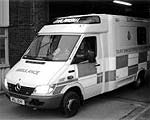 Go to main content
Go to main content
Archive Website of the UK government
Please note that this website has a UK government accesskeys system.
Main menu
Page menu
Home and community

Volunteering in hospitals

You don't need any special skills to volunteer in a hospital and it is up to you how much of your time you dedicate. Read about types of volunteering roles you can do and the benefits of volunteering.
How to volunteer in a hospital
Contacting your local NHS trust is the best way to find out about hospital volunteering opportunities. Your NHS trust is the organisation that runs healthcare services in your area. Many trusts have a voluntary service manager or a team of people responsible for co-ordinating volunteers. You can find contact details of your local NHS trust on the NHS Choices website.
Applying for a volunteering role
To apply for a volunteering role in a hospital you will usually have to complete an application form. Staff at your NHS trust will tell you where to get an application form when you contact them about volunteering roles.
You must be over 16 to volunteer. If you have a criminal record you will be asked to declare this on your application form. You will also be asked to get a criminal records bureau (CRB) check.
When you have given the hospital your application form, you may be asked to have a short informal meeting with staff. Some hospitals may also ask you to provide references.
Types of volunteering roles in hospitals
There are around 100 roles open to volunteers in hospitals. Some roles involve working with hospital staff, while others involve spending time with patients. For example, you might help staff with administrative tasks, or you might sit with a patient during an eye operation. Often volunteers simply spend time talking to patients who don’t have friends or family members to visit them.
How much time you spend volunteering each week or month is up to you. However, the hospital may ask you to commit to volunteering for a certain period of time, for example six months. Normally, volunteers are asked to be available at the same time each week or month. This allows the hospital staff to know in advance how much help they will have each day.
To read real stories from people who volunteer, go to the NHS Choices website.
The benefits of volunteering in a hospital
Most people who volunteer in hospitals simply want to help other people, but being a volunteer can help you too. For example, volunteering in a hospital is a good way to gain experience if you’re interested in a career in healthcare. People who volunteer can find it boosts their confidence.
Read more about the health benefits of volunteering on the NHS Choices website.
Volunteering and your money
If you are thinking of volunteering and you get state benefits, such as Jobseeker’s Allowance, you must talk to your Jobcentre Plus adviser first. In most cases, doing voluntary work will not affect the benefits you get.
For more advice, read ‘Volunteering while on benefits’ available from the link below.
Help influence how services are run in your area
As well as volunteering in a hospital, you can help with the way hospital services are run by joining your Local Involvement Network (LINk). LINks are made up of individuals and community groups that work together to improve health and social care services.
There are several ways in which you can support your LINk. You can attend occasional meetings about the services you use, or you can become a representative who visits services to see how they are run.
Read more about LINks on the NHS Choices website.
In this section...
- Green volunteering and working with animals
- How to volunteer
- Volunteering as a magistrate
- Volunteering as a school or college governor
- Volunteering as a special constable or police support volunteer
- Volunteering to work with detainees, prisoners and offenders
- Volunteering while on benefits
- Your rights as a volunteer
- Volunteering for the over 50s
 Facebook
Facebook Twitter
Twitter StumbleUpon
StumbleUpon Delicious
Delicious Reddit
Reddit
